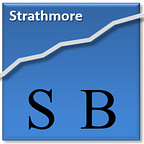Is Your Business Sellable or Investable? How to Prepare Your Business for the Market.
Happy New Year! In 2018 you may be planning to attract investors, sell your business or simply start preparing your business for future sell or investment. If so, these factors are worth keeping in mind.
Selling a business and attracting an investor are essentially the same. In one you are selling the whole of your business while in the other you are selling part of your business. And the sale of a business is no different from the sale of real estate or a car. In both cases you need to prepare the asset for viewing and selling. The better you prepare, the quicker and more profitable the sale will be.
Preparation takes time. To understand how to attract investors or buyers, you must place yourself in their shoes and appreciate their needs.
First, they will want to know how your business has been doing so far. They will want to see the results of the last 2 to 3 years and ideally see an upward trend. The results, both financial and non-financial (e.g. your customer base) will need to be transparent, plausible and verifiable. You therefore need to put all your financial, legal and fiscal documentation in order. The reality, however, is that rarely is any business 100% clean. Buyers/investors are therefore also advised not to run after full transparency. All the same, whatever is not so clearly presentable, must still be explainable.
Secondly, investors will need to understand why you need the money, how you are going to use it and what will change in the business once the funds are raised and invested. They will require from you a detailed, comprehensive and thorough business plan. This is a serious document that can only be written by you, the founder/entrepreneur, with your in-depth knowledge of the company, its history and your future plans. You can get assistance (e.g. advice on how to prepare it, design/presentation skills), but you cannot delegate or outsource this process.
Thirdly, you will need to prove your and your team’s skills and experience. It is not the second-hand assets or premises that investors are investing in, but the ability of you and your team to deliver growth and future profits. Past profitability is obviously an important metric for investors but surprisingly it is not the most important. More imperative for an investor is your team’s ability to utilise the extra investment to transform your operations into having greater profits in future. The value of the company is not the sum total of its assets, but the present value of its future cash flows.
Valuing a publicly listed company like Centum or Safaricom is straightforward. But how do you value a private SME business? Apart from the obvious demand and supply considerations there are several valuations methods that are used. Majority of these only suit big corporate players, but there are some that apply for SMEs. These are:
- Comparative — you benchmark your business with similar ones in your industry (requires an active investment market)
- Profitability — you take the yearly earnings and use a multiplier (e.g. 2017 revenues multiplied by 5)
- Cost-driven — you estimate the investment needed to establish and develop such a business to the point it has reached
In practice, a combination of these methods is used rather than solely applying one of them. You could attempt applying them yourself or you could engage a professional. Either way, understanding how they work is still essential, even with the help of a professional.
If you are after investment (rather than an all-out sale) you will want to attract investors that not only bring money, but valuable experience and knowledge too. You must ensure that the partnership will work.
- Are you psychologically compatible? The majority of partnerships fall apart because of quarrels between the partners.
- Are your visions of the company aligned? You don’t want a circular firing squad.
- Will you be able to split responsibilities? Do you have complementary skills? This will allow you to work together more effectively and avoid conflicts.
Finally, having systems and processes is crucial. You can’t delineate and delegate responsibilities before you define them well. Having systems is what distinguishes a company from a one-man show and ensures its survival beyond the founder. Defining processes takes time and installing them even more time and effort. Does your business have well defined and operational systems and processes?
Selling your business or getting investors is a daunting task. Many find the preparation required overwhelming. However, the alternative — embarking on the journey unprepared — will not only waste your time but risk your reputation and worse get you a bad deal that you will regret. Taking the time to approach it correctly will pay off in the end.
*How ready is your business for a buyer or an investor? Find out by taking this short survey: https://goo.gl/forms/AJUQp4y8ZgVxPEDU2*
